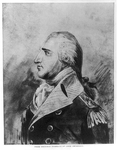Posted on November 30, 2013
Kerry’s
Baggage
Why
has it gone uninspected?
by
Daniel Clark
So, what’s the outcome of the interim agreement that’s been struck with Iran? According to the Obama administration, we’re going to dramatically ease the economic sanctions against that country, in exchange for its unverifiable promise that it will limit the enrichment of its uranium so that it cannot be weaponized. According to the Mullahs, we haven’t even got that promise, but instead have open-endedly agreed to the proposition that Iran has a right to enrich uranium.
 In either case, that doesn’t sound like a very
good deal. Then again, why would we
expect it to be, when there was nobody there negotiating on America’s
behalf? Instead, President Obama sent John
Kerry.
In either case, that doesn’t sound like a very
good deal. Then again, why would we
expect it to be, when there was nobody there negotiating on America’s
behalf? Instead, President Obama sent John
Kerry.
If it’s not obvious why the 2004 presidential nominee is unfit to represent America, that’s only because liberals have succeeded in setting rules of decorum – both in Congress and in general political discourse – according to which anyone who questions a liberal’s patriotism is ostracized. The more valid the question, the more forcefully the questioner is denounced (see: McCarthy, Joseph).
Perhaps that’s why, when Obama picked Kerry to head the State Department, nobody found it relevant that his most formative diplomatic experience was an act of treason. In 1970, Kerry met with North Vietnamese representatives in Paris. He held no government position at the time, apart from his being in the Naval Reserves, but instead was there to represent Vietnam Veterans Against the War, the organization whose fraudulent “Winter Soldier Investigation” he recounted in his slanderous 1971 testimony before the Senate.
During the ’04 campaign, Kerry portrayed himself as a well-meaning peacemaker, by saying that he’d met with “both delegations.” What he meant by that, however, was that he’d met with representatives of both the North Vietnamese government and the Vietcong. No representative of the United States was present.
The “People’s Peace Treaty” that resulted was not an agreement between opposing sides of a conflict, but only a propaganda piece that had been agreed upon by America’s foreign and domestic enemies. The Communists did agree to certain concessions, but those were all predicated on a U.S. withdrawal. Once America abandoned the fight, the Reds would release all the POWs, and hold free elections in South Vietnam. Of course, there would be nothing to hold them to that, once their demands had already been met.
Likewise, the Iranian deal requires us to give up our leverage before getting anything in return. Even if the Iranians agree to the enrichment limits, what happens if they simply opt not to comply? By the time we discover their transgression, the development of their program could be so advanced as to deter us from reinstating the sanctions.
 There’s
no reason to expect Kerry to negotiate any differently now than he did four
decades ago, because his behavior has been consistent throughout. As a senator, the purveyor of “People’s Peace”
traveled to Nicaragua with Sen. Tom Harkin in 1984, to publicly support the Sandinista
military dictatorship headed by Daniel Ortega, and to accuse the
American-supported Contras of “terrorism.”
As recently as 2005, he characterized the role of American soldiers in
Iraq as terrorizing women and children in the dead of night. From one conflict
to another, the theme has been, to rephrase an Arabic proverb, the enemy of our
enemy is John Kerry’s enemy.
There’s
no reason to expect Kerry to negotiate any differently now than he did four
decades ago, because his behavior has been consistent throughout. As a senator, the purveyor of “People’s Peace”
traveled to Nicaragua with Sen. Tom Harkin in 1984, to publicly support the Sandinista
military dictatorship headed by Daniel Ortega, and to accuse the
American-supported Contras of “terrorism.”
As recently as 2005, he characterized the role of American soldiers in
Iraq as terrorizing women and children in the dead of night. From one conflict
to another, the theme has been, to rephrase an Arabic proverb, the enemy of our
enemy is John Kerry’s enemy.
As if to deliberately confirm his pro-enemy position, Kerry stated in 2007 that “there was not a massive bloodbath in Vietnam” after the U.S. pulled out. He did acknowledge that the Communist reeducation camps “weren’t pretty … but on the other hand, I’ve met a lot of people today who were in those education camps, who are thriving in the Vietnam of today.” He stands by his description of his fellow American soldiers as torturers, murderers and rapists, though.
What’s different today is that Kerry is not representing some hippie subversive group, or speaking for the Alger Hiss wing of the Democratic Party. Like it or not, he’s a legitimately appointed and confirmed cabinet secretary, part of whose job is to represent the United States in negotiations.
How has it come to this, that our country is being led by people who don’t even like it or share its interests? The unfortunate fact is that not enough people recognized it while it was happening, which is a direct result of conservatives’ passive adherence to liberal speech codes. But what other choice is there? You can’t just go around accurately describing people as traitors and Communist sympathizers, because …
Well, you just can’t. That’s all.
The
Shinbone: The Frontier of the Free Press